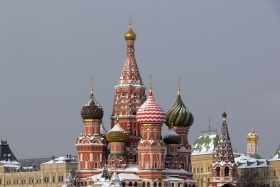Crimea crisis: analysts warn about sanctions

Simon Derrick, chief market strategist BNY Mellon pointed out that Russia has yet to start seriously reducing its holdings of dollar assets or the dollar, beyond what it has had to spend already defending its own currency.
“As a result, central bankers throughout the developed world are likely to be keeping a particularly close eye out for any signs of Russian money heading their way and, no doubt, will react accordingly if they do so.”
Andrew Cole, investment director of the Global Multi Asset Group at Baring Asset Management said that from the perspective of Russia, the rouble has fallen sharply in recent weeks and there is a risk that an intensification of the confrontation and the imposition of further sanctions could further undermine the Russian economy.
He added that the situation in Ukraine could also have negative consequences for economies reliant on foreign trade and investment with Russia, but believed that other factors such as the slowdown in Chinese economic activity are of more investment significance in the long term.
According to BlackRock’s global chief investment strategist Russ Koesterich, stock prices are close to their all-time highs, which suggests they are not factoring in a lot of bad news. “As such, should the situation in Ukraine deteriorate, stocks could be vulnerable in the near term.”
“In addition, there are some specific risks for Europe. Europe imports roughly 30% of its natural gas from Russia and should any sort of economic sanctions come to fruition, Russia could decide to interrupt this supply.
At this point we are not expecting this to occur, but should significant sanctions be enacted, such actions would certainty hurt Europe's already-fragile economic recovery and would act as a drag on European stocks.”
However, Jan Dehn, head of research at Ashmore said the crisis is a convenient vehicle for revving up negative sentiment to support a broader unwind of pregnant positions in developed equity markets.
“The story that Russia is holding the entire civilised world hostage over Crimea, threatening the very foundations of global security is of course a bit ridiculous. For one, West Texas Intermediate crude would not be trading below $100 per barrel if there was a real risk to Russian energy exports.
Russia accounts for 12% of global oil exports and is by far the world’s largest producer of gas. Russia and the West have overwhelming incentives to compromise, but only after a suitably public row.”
Simon Colvin, research analyst Markit observed that rouble-denominated bonds in Gazprom have started to trade at a premium to the local Russian benchmark rates, possibly implying that in the recent turmoil, Russian credit investors are favouring loans backed by tangible corporate assets over those backed by the Russian government.
Found this useful?
Take a complimentary trial of the FOW Marketing Intelligence Platform – the comprehensive source of news and analysis across the buy- and sell- side.
Gain access to:
- A single source of in-depth news, insight and analysis across Asset Management, Securities Finance, Custody, Fund Services and Derivatives
- Our interactive database, optimized to enable you to summarise data and build graphs outlining market activity
- Exclusive whitepapers, supplements and industry analysis curated and published by Futures & Options World
- Breaking news, daily and weekly alerts on the markets most relevant to you


